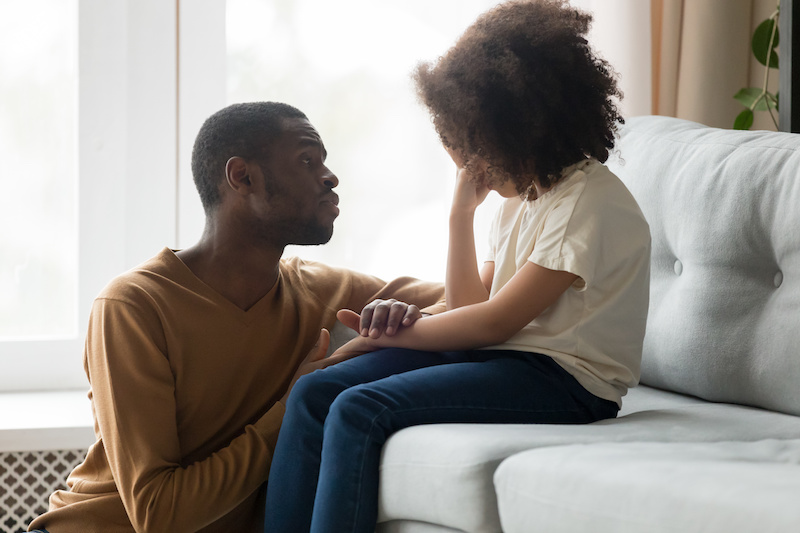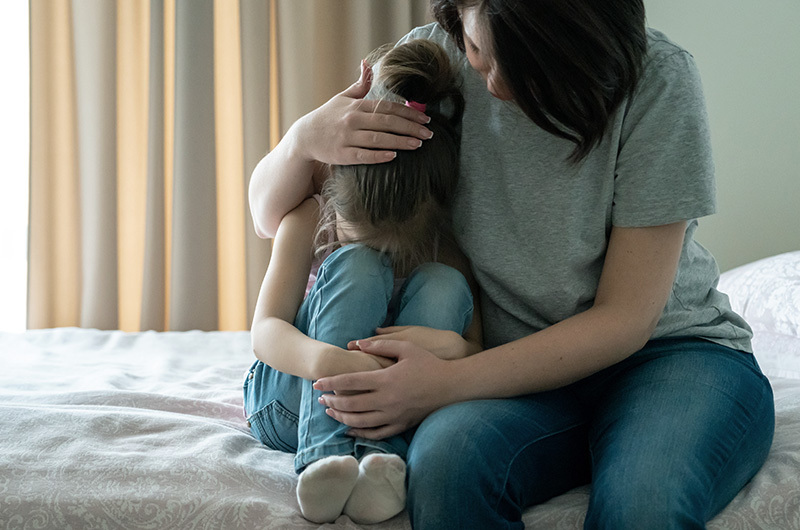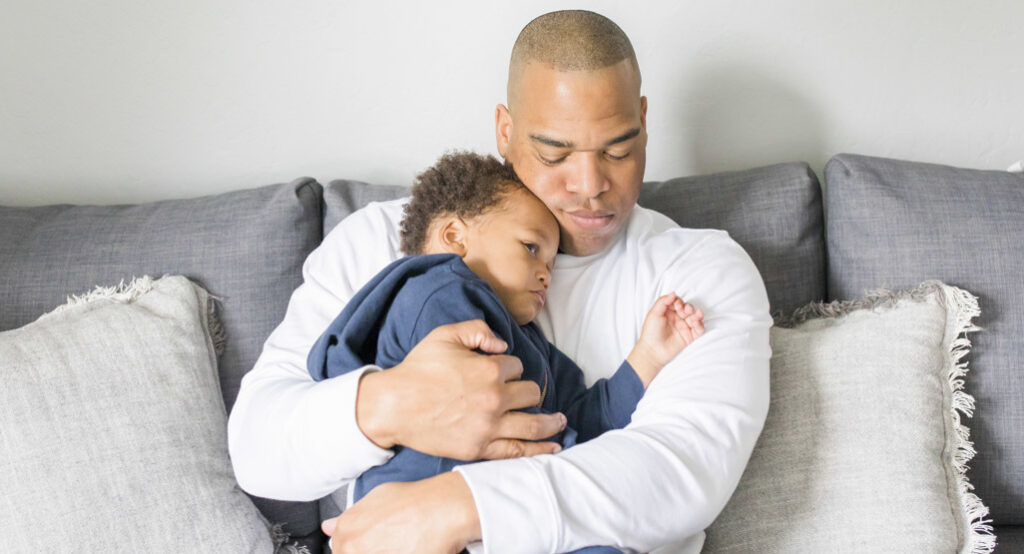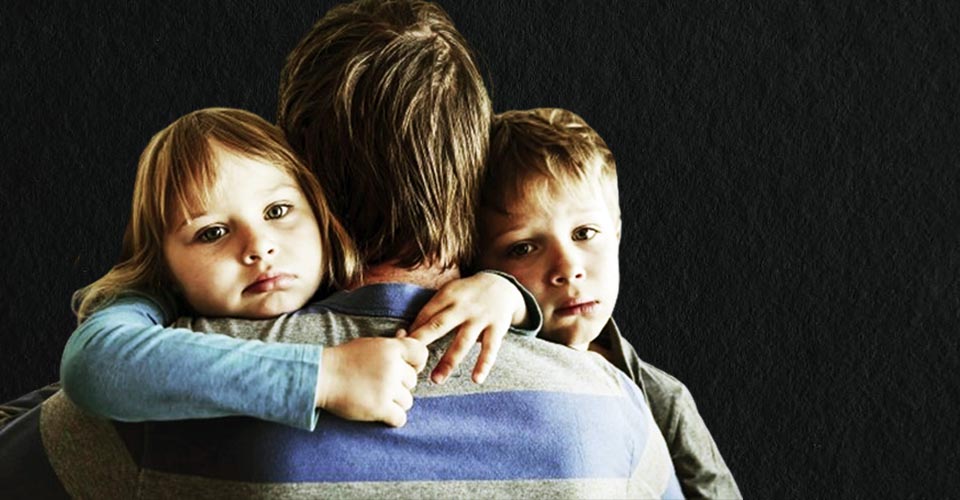When a loved one dies, it can be an overwhelming and heart-wrenching experience, not only for adults but especially for children.
How do we help our children understand and cope with the loss of someone they love?
In this article, we will explore five loving and practical steps we can take to guide our children through their grief and help them when a loved one dies, offering them the reassurance and stability they need during this difficult period.
These strategies aim to create a supportive environment helping children deal with grief and help them to grow.
How To Help A Child When A Loved One Dies?
As parents and caregivers, we want to provide comfort and support, but it can be hard to find the right words or actions.

Here are some steps for helping children deal with grief:
1. Always Be Candid and Unambiguous
Honestly explain what has happened to your kids when a loved one dies. Use language that suits their age; avoid euphemisms that may confuse them.
You can say ‘he went to sleep’, but it is better to tell him the truth that the person has died and will not be coming back again.
This directness prevents any misunderstanding and can serve as a good base for their mourning process. Answer the questions very frankly but in line with their apprehension level.
For instance, younger kids need simpler explanations than older ones who can comprehend more information about what happened.
2. Hear Them Out and Validate Their Feelings
Tell your kid to express his feelings, don’t judge him for anything he says or does. Children’s emotions at this time can include sadness, anger or confusion, and fear. Tell them all of their feelings are normal and okay.
We may tell them things like “It’s alright if you feel sad; I’m sad too,” which makes them know they are not alone in grief.
This is important when a loved one dies since it acknowledges how someone feels making one feel understood by others around them. At times, children might not mourn verbally but show it through other ways hence calling for keen observation and patience.
3. Give Them Comfort
A grieving child can find physical comfort such as hugs very reassuring. Physical touch gives a sense of security while also helping the individual stay connected with others on an emotional level.

This is a normal feeling that they are going through right now no matter how big or small it may be due to age differences among kids themselves whatsoever. Let them know it is fine to grieve when a loved one dies and you will always be there anytime they need you.
Just being there continuously throughout this period means everything else is comforting; words are gentle reminders of your support while your actions give assurance that you won’t leave their side during these tough moments.
Read More: 5 Signs Of Post-Traumatic Stress Disorder In Kids And How To Deal With Them!
4. Helping Children Deal With Grief By Being Normal
Your child’s routine which is done regularly can give you both a feeling of normalcy and safety.
By engaging them in recurrent tasks, they will concentrate on them and feel their grounding. We can still stay connected as a family by maintaining traditions even in the face of this upheaval.
It is good for children to have things happen at predictable times that they can control when everything else feels so out of order.
If you keep regular activities like bedtimes, school routines or weekend plans, these patterns will help your child feel more safe.
5. Practice Remembrance and Rituals
Involving your little one in such rituals as funerals and memorial services is useful for helping children deal with grief. Let them remember their loved ones by drawing pictures, writing down about them, or even telling tales.
It might be soothing for them to create a memory box or photo album where all the memories are stored away safely.
These are some of the ways through which parents can allow their kids to participate in rituals; by so doing, they will own up to whatever happens during the events since they know what exactly is happening when a loved one dies.
6. Be Patient
Grief may take time and manifest differently from one child to another at separate moments thus being patient with them during this period is essential.

Just bear with them while you are dealing with the eventualities when a loved one dies. You need to realize that their behavior may change temporarily while they try and deal with the death of somebody close to them all over again.
They might have difficulty sleeping, be moody, or regress into bed wetting among other signs of regression that could show up after a loss has occurred.
In such cases where mourning takes place, it should be treated with patience hence one has to provide time for the bereaved person as well as room for understanding without shoving “get over it” and “be strong” ideas.
7. Seek professional help if necessary
Whenever your child is having great difficulty or experiences drastic changes in behavior, seeking the services of a qualified counselor or therapist may be very helpful. Also, professional help can come up with more tools and assistance to provide for your child.
Look for therapists who have experience in helping children deal with grief. Sometimes, children need a safe space outside the family to express their feelings and thoughts.
Therapy can provide coping strategies and a supportive environment for your child when a loved one dies and works through their grief.
Remember that we are all in this together; however, with patience and love, our kids will be healed.
Read More: 10 Effective Mental Health-Boosting Activities For Children
A Word From Mind Family
When a loved one dies it is a deeply personal and challenging journey, especially for our children. As we strive to support them, it’s crucial to remember that every child’s grief process is unique.
At Mind Family, we understand the profound impact on th family when a loved one dies. We believe that with patience, compassion, and the right strategies, we can guide our children through their grief and help them find a path to healing.
Together, with love and understanding, helping children deal with grief will not be an uphill battle. Thank you for trusting Mind Family to be part of your family’s support system.
Frequently Asked Questions (FAQs)
1. How should I explain death to my child?
Use clear, age-appropriate language. Avoid euphemisms like “went to sleep.” Explain that the person has died and won’t return, providing a straightforward foundation for their grieving process.
2. What should I do if my child seems angry or confused?
Encourage them to express their feelings without judgment. Let them know it’s okay to feel sad, angry, or confused. Validation helps them feel understood and supported.
3. How can I comfort my grieving child?
Offer physical comfort, such as hugs, and reassure them that their feelings are normal. Be present and available, showing consistent support through words and actions.
4. Why is maintaining a routine important?
Routines provide a sense of normalcy and security. Keeping regular activities helps children feel more grounded and gives them predictability during the chaos of loss.
5. How can I help my child remember their loved one?
Involve them in rituals like funerals and encourage them to draw, write, or share stories. Creating a memory box or photo album can also be comforting.















Leave a Reply